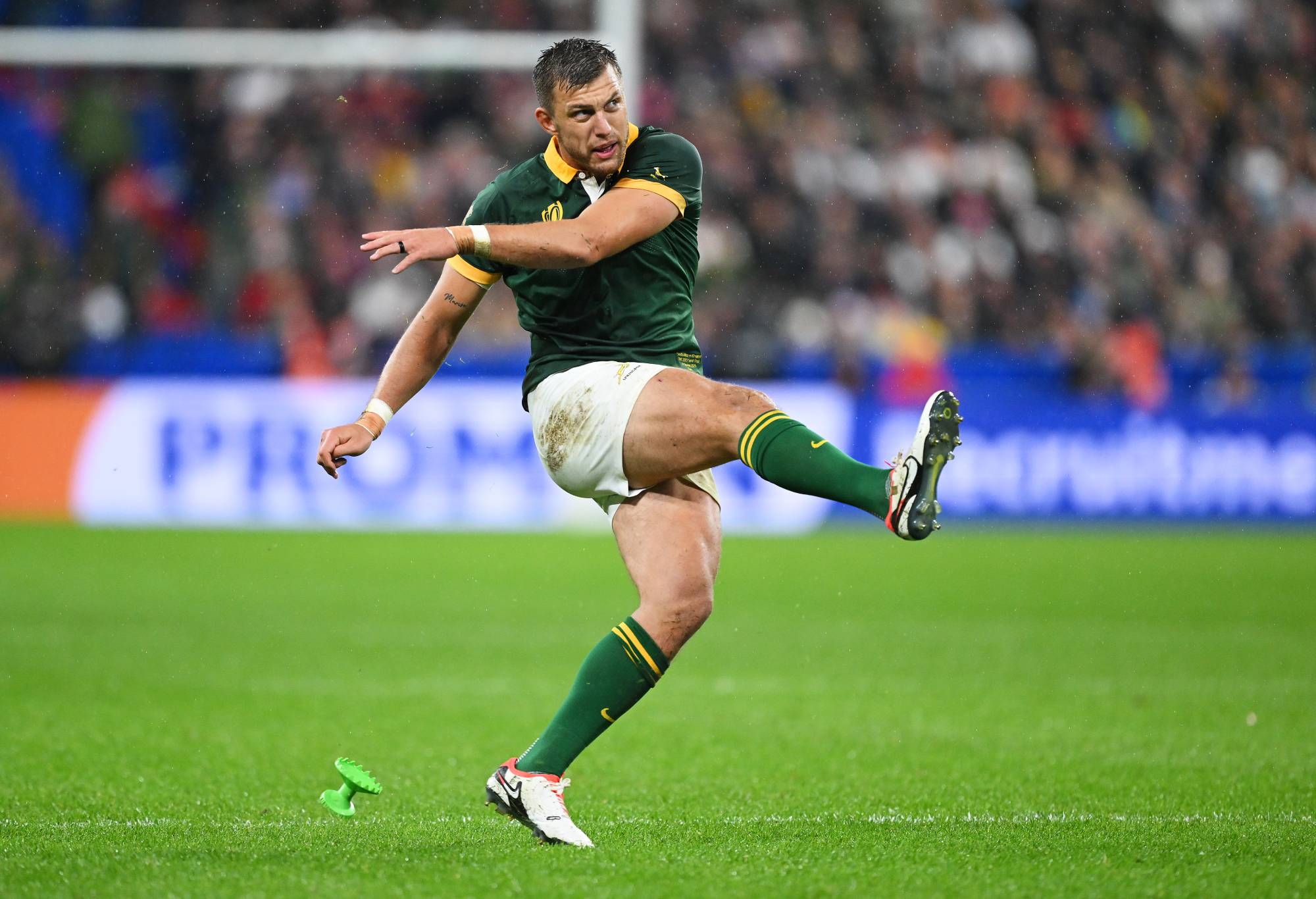Terence Cleve
new author
Roar Rookie
At the end of the Cold War, Francis Fukuyama prophesied that history had come to an end. As the most effective form of government, western liberal democracy was on an inevitable march to becoming the final form of rule.
Men’s Test rugby too has been an ideological war, this one between penalty goal accumulating accountants and the craftsmen of beautiful tries. This history too has ended – accountancy has proved the most effective form of winning rugby.
History finally ended on 21 October 2023. On that evening in Paris, England and South Africa put together seven penalties, a drop goal, and a converted try. Aside from the drop goal, all points were scored from penalties. The try was also the result of a penalty, a kick to the corner, and the sort of lineout-maul-thing that had Wayne Smith so rightly turning over to watch animal documentaries.
Accountancy does not come more pure than this sad best-of of so many big games of the professional era, a blueprint for those of the future.

South Africa’s Handre Pollard kicks at goal against England. (Photo by Hannah Peters/Getty Images)
Because, at the end of history, rugby has become penalties. In the knockout stages of the 2023 World Cup, there was a penalty every second minute of play (average number of penalties in finals: 18.375; average ball in play time throughout the tournament: 34.18 minutes).
Penalties are not only in the tackle, the ruck, and the scrum, they are also the best possible result on each occasion. Penalties amplify the importance of arbitrary refereeing decisions, are a major contributor to stoppages and dead time, and fundamentally undermine the try.
More, a fear of spilling penalties is responsible for the conservatism choking the game – from excessive kicking and the related focus on field position to the domination of forward play, an unwillingness to play with ball in hand, the ever diminishing number of offloads, and an over reliance on attacking defence. It is the laws of the game, rather than the coaches and players, that have made test rugby the disappointment it so often is today.
No team has embraced penalty-goal accumulating accountancy more wholly than South Africa, and no team has been remotely as successful. South Africa have won four of the eight world cups they have played in. In those four finals victories, they have accumulated 18 penalty goals, two drop goals, and two tries. This is the winning “ugly” that English prop Joe Marler admits his team has embraced and that ever more teams, in the pursuit of victory, must embrace.
History could have been different. In 2009, rugby narrowly avoided becoming a beautiful game when World Rugby rejected the most important Experimental Law Variation of all, the replacement of long-arm penalties with their short-armed cousins. The transformation, in other words, of rugby as a game for penalty goals into a game for tries.
But as Fukuyama’s critics have shown, the march of history need not be inevitable. Structures can change. And if rugby is to truly become a great and even a global game, its structures must change. Penalties must be scrapped but for the three areas they are legitimate – offsides and professional fouls that inhibit attack, and foul play that sullies the game.
For that to happen, those of us everywhere who love rugby – for what it could be as much as what it is – need to stop being complicit.
We need to stop grumbling quietly about “the state of the game”, about inexplicable penalties deciding matches, about incessant kicking, about rugby ugly.
Rather, we need to stand together and make one clear and simple demand – scrap penalties now. If we do not, we know the future: in the dying minutes of the next Lions series, of the next World Cup final, there will be a contentious late penalty, a man suspiciously eyeing an unmoving set of goal posts, an anxious kick, a sad end to a spectacle that could have been. But we know something else too, for history has shown it time and again, it is the people who can force a revolution. Right now, rugby needs nothing less than that.